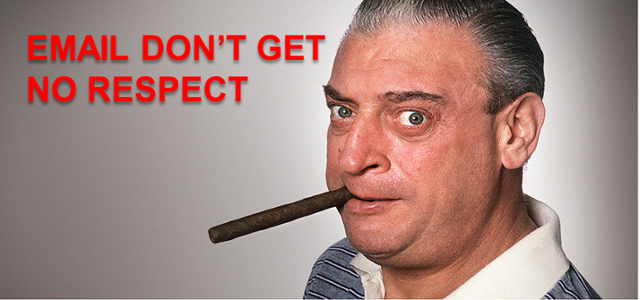Recognition and Respect: How to Earn It

As I received some interesting comments and reflections on LinkedIn on my recent blog post on Innovation Consultants, Have the Guts to Tell the Truth!, I got to think about some stuff that I wrote a while back.
Here, I started out with Malcolm Gladwell, who in his best-selling book Outliers stated that it takes 10 years to become an expert in any given subject. Many people actually reach this level. You might not be a professor or best-selling author, but you have probably worked long enough to become an expert in your given field – or you are on your way.open
Yet, people having enough knowledge to qualify as a thought leader or expert do not get the recognition and respect they deserve – and often long for. This is an interesting paradox. You work hard and at some point expect/hope to be perceived as an expert or thought leader, but it does not happen.
Why? The clutter of information and knowledge that surrounds us makes it so much more difficult to break through even if we have great, original ideas and an impressive knowledge base. It is no longer enough just to qualify by knowledge to become an expert; you also need to know how to communicate and how to build a personal brand in order to become a thought leader.
Here are a few tips on what to consider if you (and others in your organization) want to overcome this paradox and be perceived as a thought leader or expert.
A Guide to Recognition and Respect
- Passion is a must: You need to be passionate about what you are doing. I hope that this one is already in place for people who qualify as experts. If you decide to spend ten years on a given topic or business area, then I really hope you have a passion for what you are doing.
Actually, I would argue that you could not deliver quality work over such a long period if you do not have a passion for what you do. Nevertheless, I too often meet people doing things they do not really like doing. I just do not get this, but I’ve seen it too often to doubt that it applies to a good number of people. - Persistence pays: I remember when I started blogging several years ago. Sure, people will just come and read my thoughts. Nothing happened. Then, I got a couple of articles published in Strategy & Innovation, a respected newsletter from Innosight. Surely, I thought, companies will start looking into my services now. Nothing happened.
I started to engage with Twitter and became quite adept on social media in general. This helped drive some traffic to my blog. Sure, companies would now approach me. Things began to happen although slowly, which I attributed at least in part to the economic crisis the world faced then. Finally, in May 2010, Wiley, a respected international publisher, published my first international book, The Open Innovation Revolution. A book is a real door-opener, right? Not as much as some people think. Even after several other books, I still have to work hard and be proactive in order to get my share of business.
So the chief lesson I took from this journey is that nothing happens if you are not persistent. - Build a following: You do great work and you want to share this with the world. You might even want other people to help you spread the word on your work. Today, this starts by understanding how social media works and by actively engaging in a variety of social media platforms. Just remember that this is tricky and time-consuming, which circles back to my point on persistence.
- Co-create with others: I share my blog posts on LinkedIn. The reason for doing this is three-fold. I really believe that sharing what is happening in the innovation community helps this movement grow even stronger. The other reason is that helping others get recognition by letting them build further on my thoughts likely also benefits myself in the long run. If they engage in your discussions, you also get new perspectives and insights. This feeds new ideas and new content. The third reason is that this is a good way to promote my own work.
I can also mention that allow others to use my content anyway they see fit as long as they give due credit. Co-creating like this only bring good things for me. - Be honest and “share” yourself: On my blog, I share private thoughts and lessons learned. I do not have to, but I have found that what many people really like is openness and honesty as this reveals integrity, which again helps build authenticity. This approach also reflects my values of being open to helping others, working with a passion and being honest.
What do you think of this? Can you share other insights or experiences on this topic?
[This post originally appeared on 15inno and is republished with permission.]
Looking for information on software you can use to drive innovation at your organization? Check out our Top 10 Business Process Management software report. Also, make sure to take a look at our full collection of best practices blog content.






